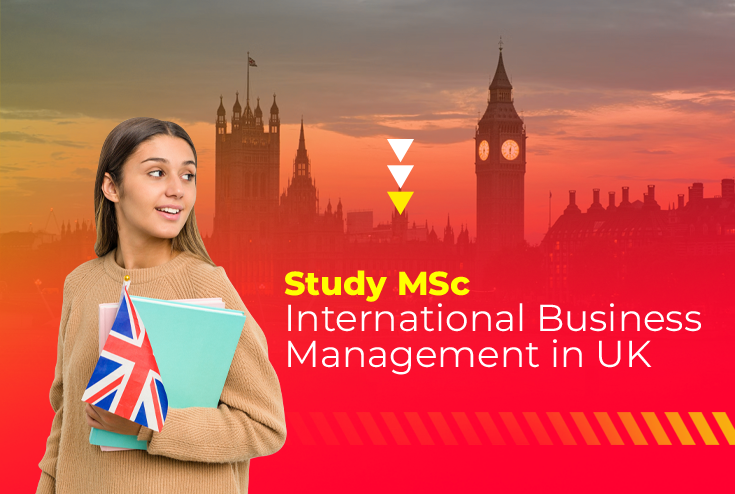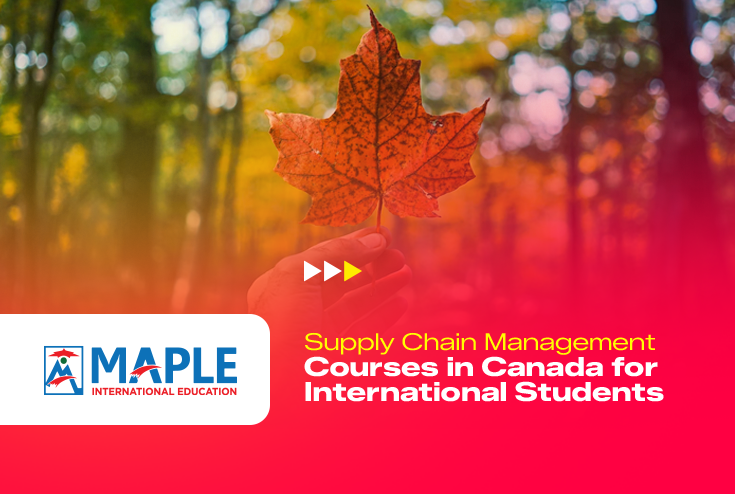
Study MSc International Business in UK from Nepal: A Guide 2026
For Nepali Students specifically, the UK offers unique advantages: one-year intensive master’s programmes that save time and money, globally recognized degrees that enhance career prospects in both Nepal and internationally, and the Graduate Route visa allowing 2 years of UK work experience after graduation.
The demand for MSc International Business among Nepali students has surged by 45% in the past three years. This growth reflects Nepal’s increasing integration into the global economy and the premium that Nepali employers place on UK qualifications. Whether you're from Tribhuvan University, Kathmandu University, or Pokhara University, this comprehensive guide will help you navigate every aspect of studying MSc International Business Management in the UK.
What You'll Learn in This Guide- Top 10 UK universities with complete fee comparison
- Entry requirements and application process for Nepali students
- Scholarship opportunities worth up to £35,000
- Career prospects and salary expectations (UK and Nepal)
- Complete cost breakdown and money-saving strategies
- Post-study work visa details and application process
Table of Content:
- Why Study MSc International Business Management in the UK
- Top 10 Universities for MSc International Business Management (2025)
- Fee Structure and Financial Planning for Nepali Students
- Tuition Fees by University Tier (2025)
- Living Costs and Money-Saving Strategies
- Entry Requirements for Nepali Students
- Scholarships and Financial Aid for Nepali Students
- Education Loans in Nepal
- Course Structure and Modules
- Assessment Methods & UK Grading System
- Career Opportunities and Salaries
- Top Hiring Sectors
- Post Study Work Visa (Graduate Route)
- How to Apply from Nepal (Step-by-Step Guide)
- Tips for Success in the UK
- Conclusion
- Frequently Asked Questions (FAQs)
- Additional Resources
Why Study MSc International Business Management in the UK?
UK business schools hold more triple-accredited institutions than any country except the USA. This matters because triple accreditation ensures your degree meets the highest global standard, is recognized by employers worldwide, and provides access to international alumni networks spanning 150+ countries.
25 UK business schools hold triple accreditation. The UK ranks second globally for business education quality. 94% of UK business school graduates are employed within 6 months.
Program duration across countries:
For Nepali Students, completing master’s in one year means:
Saving 12-24 months of living expenses
Earning salary one year earlier (opportunity cost benefit)
Lower total investment with comparable career outcomes
Faster application of skills in Nepal's evolving business landscape
The UK’s Graduate Route visa is a game-changer. Unlike student visas in many countries, this allows you to work unlimited hours in any jobs or sectors, switch employers with restrictions, start your own business, gain UK work experience that command a 30-50% salary premium in Nepal and apply for permanent skilled worker visa if you secure qualifying employment.
Nepali graduates working in the UK for 2 years typically return to Nepal earning NPR 150,000-300,000 monthly, compared to NPR 60,000-100,000 for graduates without international experience.
UK MSc programmes emphasize exceptional learning:
Live business projects
Industry internships
Guest lectures
Business simulations
Top 10 Universities for MSc International Business Management in UK (2025 Rankings)
Complete Fee Structure and Financial Planning for Nepali Students
Tuition Fees by University Tier (2025)
Living Costs Comparison
Money-Saving Strategies
Part-time work can earn £8,000-£10,000 annually.
Choosing a strategic location can save £7,000-£9,000 by choosing northern cities over London.
University accommodation can be 15-25% cheaper than private rentals.
Student discount is available. 16-25 Railcard, NUS card save £500+ annually.
Cooking at home can save £200-£300 monthly.
Second-hand items such as books, furniture, electronics also save money.
Budget supermarkets such as Lidl, Aldi are 30-40% cheaper than premium stores.
University often provides free services such as gym, counseling, career services, and software.
Share accommodation can help reduce rent by 25-35%.
Entry Requirements for Nepali Students
Academic Qualifications
For Tribhuvan University Graduates:
For Kathmandu/Pokhara University
English Language Requirements
Test Preparation in Nepal
British Council Nepal offers IELTS prep courses
Test fee: NPR 26,500
Preparation time: 2-3 months recommended
Test centers: Kathmandu, Lalitpur, Pokhara
Required documents
Academic transcripts (all years)
Degree certificate (provisional acceptable)
English language certificate (IELTS/TOEFL/PTE)
Statement of Purpose (800-1,000 words)
Two recommendation letters
Updated CV/Resume
Passport copy
Financial documents (for visa stage)
Scholarship and Financial Aid
Major Scholarships for Nepali Students
Chevening Scholarship (Full Funded)
The Chevening Scholarship is funded by the UK government. It is one of the most prestigious international scholarships schemes.
It Covers:
Full time fees.
Monthly stipend
Return airfare
Visa fees
Eligibility:
Should be a Nepali citizen
Must complete a bachelor's degree from a registered university and secure 60% or above.
Must have 2 years of work experience.
English proficiency test must be taken.
Timeline:
Applications open in August and closes in November. The results will be published in June. The success rate is 3.75-5% for Nepali students.
Commonwealth Shared Scholarship (Fully Funded)
Commonwealth Scholarships is a full fund scholarship by the government of the UK for international students. These scholarships are specifically targeted for those students who cannot afford to study in the UK.
It covers:
Full tuition and living allowance
Airfare and thesis grant
Eligibility:
It is specifically targeted to those students who cannot afford UK study.
Must complete a bachelor's degree from a registered university and secure 60% or above.
development impact focus.
Participating Universities:
University of Birmingham
University of Leeds
University of Edinburgh
University-Specific Scholarships
University of Warwick: This university provides scholarships to international students. It provides a Chancellor's Scholarship offering £10,000 and Regional Scholarship offering £5,000.
Visit University of Warwick for further details.
University of Manchester: This university provides two types of scholarship for international students: International excellence which offers 25% tuition reduction and an alumni scholarship offers £3,000.
Visit University of Manchester for further details.
University of Edinburgh: This university offers global master scholarships which offers £5,000-£10,000 for international students.
Visit University of Edinburgh for further details.
Ulster University: This university provides an automatic International Scholarship which offers £2,000-£4,000 to international students.
Visit Ulster University for further details.
Education Loans in Nepal
Loan Requirements:
University admission letter
Property collateral of 150% of loan value is needed
Guarantor
Income proof
Banks Providing Education Loans in Nepal
Course Structure and Modules
Typical Programme Structure
Semester 1: The duration of this semester is typically four months, starting from September and ending in December. This is a foundation semester where students are taught:
International Business Strategy
Global Marketing Management
Financial decision-Making
Research Methods
Semester 2: The duration of this semester is typically of 3 months, starting from January and ending in March. This is a specialization semester where students choose 3-4 electives from:
Data Analytics for Business
Supply Chain Management
Digital Business Transformation
Sustainable Business
International HRM
Emerging Markets
Semester 3: The duration of this semester is typically 6 semesters, starting from April and ending in September. In this semester, students need to do a research project containing 15,000-20,000 words. It contains 30-40% of the final grade. Students also get options for company based research.
Assessment Methods
UK Grading System
Key Insight: 70% is excellent in the UK and is not considered average. Critical thinking is valued more over memorization.
Career Opportunities and Salaries
Job Roles and Salary Expectations
Top Hiring Sectors
Consulting companies such as Deloitte, PwC, EY, KPMG, McKinsey, BCG, Bain, etc.
Financial services companies such as Banks, investment firms, fintech companies, etc.
Technology companies such as FAANG, Microsoft, IBM, startups, etc.
Retail or FMCG companies such as Unilever, P&G, Amazon, Tesco, etc.
International development companies such as Unilever, P&G, Amazon, Tesco, etc.
Post Study Work Visa (Graduate Route) for Nepali Students
Key Features:
The duration provided by this visa is 2 years for masters and 3 years for Phd
Students can work for unlimited hours, any jobs with an employer after obtaining this visa.
Self-employment is allowed.
Job offer is not required.
Processing time takes up to 8 weeks.
Application fee costs £822 and £940 health surcharge.
Eligibility for students:
Complete eligible UK degree
Studied with student visa at license sponsor
Successfully complete course
Student visa valid OR expired less than 28 days ago.
Current in UK when applying
Application Process
Prepare documents after final results.
Complete Online Application
Pay fees which is £1,762
Biometric appointment at UKVCAS center
Wait for a decision which takes 8 weeks.
Receive BRP by post
Skilled Worker Visa Transition
Requirements:
Job offer from license sponsor
Salary must be a minimum of £38,700 annual or the current going rate.
Must have appropriate skill level of RQF level 3+
Employer must be willing for sponsorship
The success rate of transition to skilled worker visa is 60-70% of actively job-searching Nepali graduates securing UK employment within the Graduate Route period.
How to apply for MSc International Business Management in UK from Nepal (Step-by-Step Guide)
Step 1: Research Phase
Research 10-15 universities. Compare their programmes and costs to see which best aligns with your interest. Select some of the best universities of your choice. Assess financial resources and begin English test preparation.
Step 2: Application Phase
Take English language tests such as IELTS or TOEFL. Gather all of your academic documents and draft a statement of purpose. Secure referees. Submit applications to 5-7 universities of your choice. Apply for a scholarship best suited for you.
Step 3: Decision Phase
Receive university offers. If you receive multiple offers, compare them using an evaluation matrix and accept a preferred offer. Pay deposit which can range £1,000-£3,000. Request CAS letter.
Step 4: Visa Preparation
Gather financial documents such as 28-day bank statements. Get a TB test which is required for Nepali Students. Complete online visa application. Pay visa fees which are £490 and £705 health surcharge. Attend biometric appointment at VFS Global Nepal.
Step 5: Waiting Period
Visa processing takes standard 3 weeks. Book a flight after visa approval. Arrange accommodation and open international banking.
Step 6: Pre-departure
Attend pre-departure orientations. Pack essentials that are needed. Exchange £1,000-£2,000 cash currency. Connect with Nepali students groups and spend time with family.
Step 7: Week of departure
Reconfirm flight and its timing. Reach the airport 3-5 hours early. After arriving in the UK, collect BRP within 10 days. Register with university and open a UK bank account.
Common Mistakes to Avoid
Applying only to top universities
Incomplete application
Underestimating total costs
Not working part-time
Ignoring student discounts
Not using free resources
Poor time management
Starting job search after graduation
Not networking actively
Generic job application
Ignoring LinkedIn
Tips for Success in UK for Nepali Students
Academic Excellence:
Understand UK academic culture
Participate actively in discussions
Use office hours to connect with professors
Manage academic writing
Manage time effectively
Leverage free resources
Financial Management
Budget strictly
Work part-time
Use students discount religiously
Cook at home
Buy second-hand items
Save 30-50% of income if possible
Networking and Career
Start job search from day 1
Build LinkedIn presence with 500+ connections
Attend career fairs and industry events
Join professional associations
Seek internships
Connect with alumni, especially Nepali
Practice interview skills regularly
Cultural Adaptation
Join 2-3 students societies
Balance Nepali identity with UK experience
Be patient with cultural shock
Stay connected with home
Exercise regularly for mental health
Seek help when needed
Conclusion
Pursuing an MSc International Business Management in the UK as a Nepali student is a transformative investment that opens doors to global career opportunities, whether you choose to build your future in the UK, return to contribute to Nepal’s growing economy, or forge an international career path. With one-year intensive programmes, world-class education from triple-accredited institutions, and the invaluable 2-year Graduate Route visa, the UK offers an unmatched combination of academic excellence and practical career benefits. The key to success lies in strategic planning, choosing the right university based on your budget, career goals, and academic profile, then maximizing every opportunity from networking to internships throughout your studies.
The ten universities featured in this guide offer diverse pathways, from prestigious institutions like Warwick and Manchester for those seeking brand value, to excellent value options like Ulster and Portsmouth for budget-conscious students. Start your application journey today by researching programmes thoroughly, preparing your documents, and reaching out to current Nepali students at your target universities. With determination, proper planning, and the comprehensive information in this guide, your dream of earning a globally recognized MSc degree from a UK university and launching a successful international business career is well within reach.
Frequently Asked Questions(FAQs)
Can I apply with a 3-year bachelor's degree from Nepal?
Yes, most UK universities accept 3-year degrees from Tribhuvan, Kathmandu, and Pokhara Universities. Work experience strengthens applications.Is work experience mandatory?
No, but 1-2 years strengthens applications for top universities. Many successful applicants are fresh graduates.Can I work while studying?
Yes, up to 20 hours/week during term, full-time during holidays. Earn £8,000-£10,000 annually.What's the difference between MSc and MBA?
MSc is for early career/recent graduates (academic focus), MBA requires 3-5 years experience (practical, general management).Can I switch to a Skilled Worker visa after the Graduate Route?
Yes, if you secure a job paying £38,700+ from a licensed sponsor at appropriate skill level.Should I choose London despite higher costs?
Choose London if a career in finance/consulting (most opportunities) and budget allows. Save £10,000+ annually choosing Manchester, Birmingham, or Leeds.Will a UK degree be recognized in Nepal?
Yes, highly valued. UK degree holders earn 30-50% more than local degree holders in Nepal. Recognized by UGC Nepal and all major employers.How competitive is the job market?
Competitive but manageable with Graduate Route. 60-70% of actively job-searching Nepali graduates secure UK employment.What if I don't get my first-choice university?
Accept another offer (2nd/3rd choice often excellent), improve and reapply, or consider pre-Masters pathway.
Official UK Resources:
University Tools:
Scholarships:
Career Resources:
Nepal-Specific:
Also Read:Best IELTS Preparation Classes in Nepal
Best Consultancy in Nepal for UK
Masters by Research in UK for Nepalese Students
Top 11 Courses in Demand in UK 2025 for Jobs & PR




